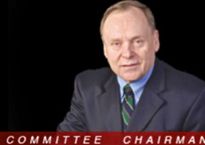 And now a word from the Pennsylvania state lawmaker who wants to slam Philadelphia and any other rogue cities and counties that enact vehicle laws regarding cell phones and texting.
And now a word from the Pennsylvania state lawmaker who wants to slam Philadelphia and any other rogue cities and counties that enact vehicle laws regarding cell phones and texting.
No municipality should take the ”lone wolf” approach, Rep. Richard Geist declares.
This all started when Philly’s mayor recently signed off on a ban on handheld cell phone use by drivers and cyclists. State legislators led by Geist threatened the city to the tune of $90 million. “We are doing what we think is in our best interest,” Mayor Mike Nutter said.
In fact, Geist points out that the fine for a local government that overrides the state vehicle code is in fact $25. In response to the Philly uprising, Geist, R-Altoona, pushed through an amendment that would withhold highway and bridge funding from an offending municipality until it gets back in line.
Geist is a senior legislator and the head of the House Transportation Committee. Here’s the chairman, in an opinion piece carried by several state newspapers:
“When you travel, you have the right to expect that all of the traffic laws will be the same, no matter where you go. Imagine the potential of driving into another Pennsylvania community and finding that there is a specific local ordinance that causes you to be pulled over for an activity that is legal in other areas? This is what my legislation seeks to prevent. A local community writing its own Vehicle Code provisions is akin to the state General Assembly printing its own money that would only be legal here in Pennsylvania.”
Geist also appears to be looking out for the little guy:
“My legislation also would prevent Pennsylvania motorists from becoming the victims of entrapment by local law enforcement. … Enabling municipalities to enact ordinances contrary to the Vehicle Code only increases the potential for this type of activity.”
There’s no mention of highway safety or the saving of lives … but Geist does note the House rejected a strict handheld cell phone ban and substituted a “secondary offense” under the existing careless driving statute. Critics called the move a thinly disguised kill-off of meaningful cell phone safety legislation.
A cynic would say Geist was finding new, improved ways of derailing cell phone legislation designed to save lives, no matter where it pops up in the state of Pennsylvania. Call us cynics.
Geist no doubt provides inspiration to the head of New York Assembly’s Transportation Committee, David Gantt, whose bizarre resistance to text-messaging legislation has brought a thicket of local and regional laws.

